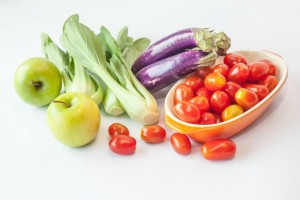Sustainable Living & Sustainable Lifestyle
Pollution and climate change is starting to impact the taste of your food.
Pollution and climate change is starting to impact the taste of your food.
Climate change, which already is affecting ocean levels and weather patterns, may soon hit home in an entirely different way: making your food taste bad.
Tasteless vegetables, stringy chicken and tougher pork. These are all possibilities in the near future, caused by rising global temperatures and increasing erratic weather patterns, according to a new study.
 The report from the University of Melbourne in Australia already has become something of a worldwide sensation, getting picked up by many media outlets and raising concerns about the impact of changing global weather patterns on food production. While it focuses on Australia, the implications are worldwide. “Climate change is already impacting a suite of Australian-grown commodities and will continue to impact farmers if stronger global efforts to reduce carbon pollution are not forthcoming,” the report states.
The report from the University of Melbourne in Australia already has become something of a worldwide sensation, getting picked up by many media outlets and raising concerns about the impact of changing global weather patterns on food production. While it focuses on Australia, the implications are worldwide. “Climate change is already impacting a suite of Australian-grown commodities and will continue to impact farmers if stronger global efforts to reduce carbon pollution are not forthcoming,” the report states.
However, the report strikes an optimistic tone, saying Australia can turn things around by taking advantage of “abundant and affordable renewable energy sources.”
“By switching to alternatives like solar and wind, we can cut carbon pollution and help protect the fresh food and farming communities that make our Aussie lifestyle so great.”
The study, called “Appetite for Change,” predicts food production may be severely impacted by climate change. Specifically, the scientific team reported that global warming may have a negative impact on consumer products that originate on farms or in the world’s oceans.
Climate changes such as inconsistent rainfall, warming oceans and seas and extreme weather conditions can lead to disease and other problems that could become harmful to food production.
The report is meant to coincide with Earth Hour on March 28, an event in which people all over the world are being asked to turn off all electronic equipment for one hour in order to lessen the worldwide carbon footprint. People are encouraged to observe Earth Hour from 8:30 p.m. to 9:30 p.m. local time.
The report listed examples of food that could taste differently because of intense heat, lessened amounts of rainfall or some combination of extreme weather conditions.
Examples included:
While the report makes dire predictions for climate change’s impact on Australian agriculture, it also offers optimism that increased attention to the issue of climate change will lead to governments and business taking steps to reduce the amount of pollutants caused by human beings.
In a preface to the report, Anna Rose, an Australian environmental activist, wrote that the hope is that the University of Melbourne report will help push for more change.
She wrote, “We hope this report helps shine a light on an often overlooked reason to reduce greenhouse-gas emissions: the future of our food and the viability of our farming communities.”
—
This article and associated resources was provided by Diamond Mind Baseball, one of the top PC baseball games on the market. Find out more at DMB’s website http://diamond-mind.com/